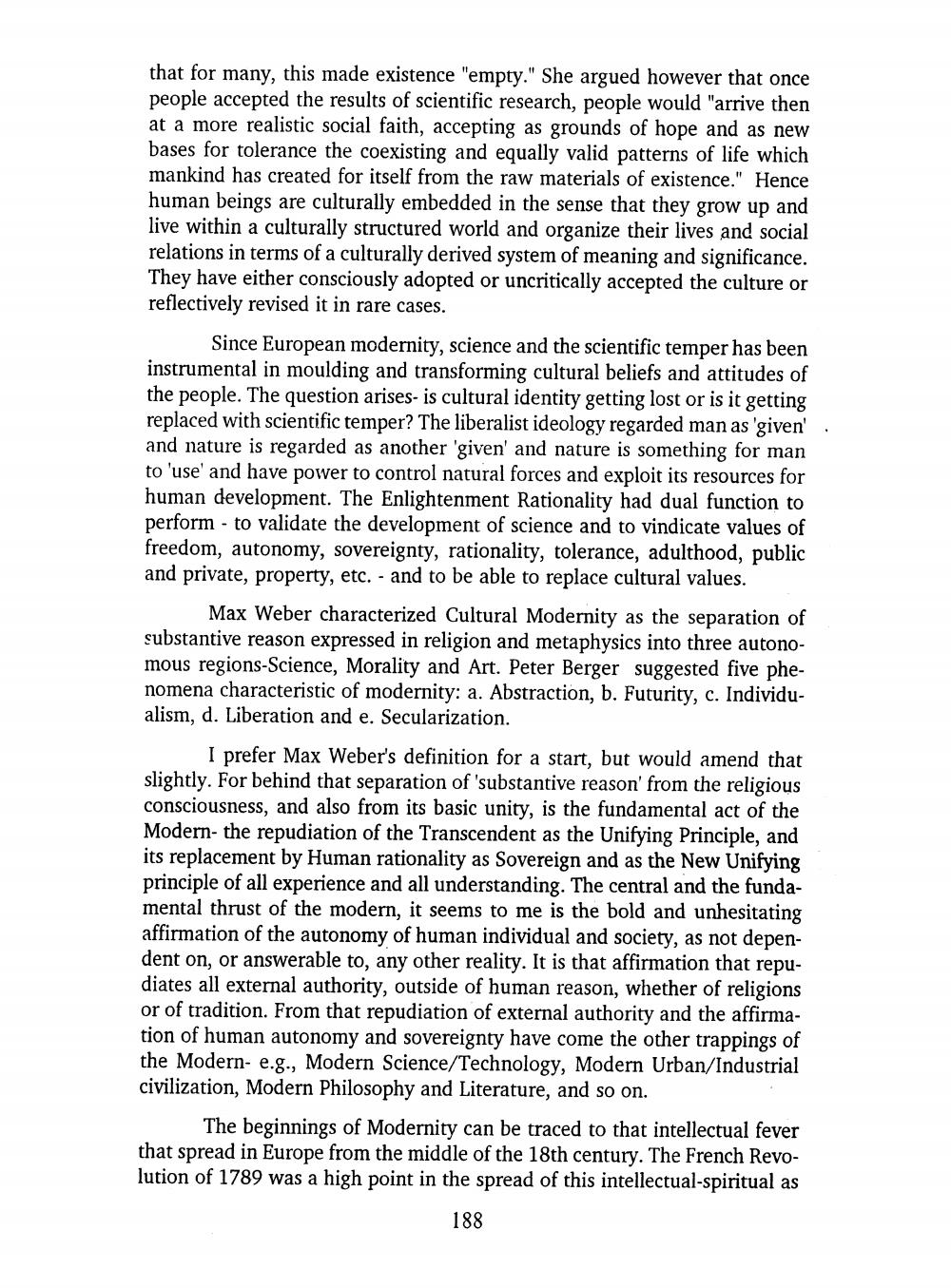________________
that for many, this made existence "empty." She argued however that once people accepted the results of scientific research, people would "arrive then at a more realistic social faith, accepting as grounds of hope and as new bases for tolerance the coexisting and equally valid patterns of life which mankind has created for itself from the raw materials of existence." Hence human beings are culturally embedded in the sense that they grow up and live within a culturally structured world and organize their lives and social relations in terms of a culturally derived system of meaning and significance. They have either consciously adopted or uncritically accepted the culture or reflectively revised it in rare cases.
Since European modernity, science and the scientific temper has been instrumental in moulding and transforming cultural beliefs and attitudes of the people. The question arises- is cultural identity getting lost or is it getting replaced with scientific temper? The liberalist ideology regarded man as 'given' and nature is regarded as another 'given' and nature is something for man to 'use' and have power to control natural forces and exploit its resources for human development. The Enlightenment Rationality had dual function to perform to validate the development of science and to vindicate values of freedom, autonomy, sovereignty, rationality, tolerance, adulthood, public and private, property, etc. - and to be able to replace cultural values.
Max Weber characterized Cultural Modernity as the separation of substantive reason expressed in religion and metaphysics into three autonomous regions-Science, Morality and Art. Peter Berger suggested five phenomena characteristic of modernity: a. Abstraction, b. Futurity, c. Individualism, d. Liberation and e. Secularization.
I prefer Max Weber's definition for a start, but would amend that slightly. For behind that separation of 'substantive reason' from the religious consciousness, and also from its basic unity, is the fundamental act of the Modern- the repudiation of the Transcendent as the Unifying Principle, and its replacement by Human rationality as Sovereign and as the New Unifying principle of all experience and all understanding. The central and the fundamental thrust of the modern, it seems to me is the bold and unhesitating affirmation of the autonomy of human individual and society, as not dependent on, or answerable to, any other reality. It is that affirmation that repudiates all external authority, outside of human reason, whether of religions or of tradition. From that repudiation of external authority and the affirmation of human autonomy and sovereignty have come the other trappings of the Modern- e.g., Modern Science/Technology, Modern Urban/Industrial civilization, Modern Philosophy and Literature, and so on.
The beginnings of Modernity can be traced to that intellectual fever that spread in Europe from the middle of the 18th century. The French Revolution of 1789 was a high point in the spread of this intellectual-spiritual as
188




